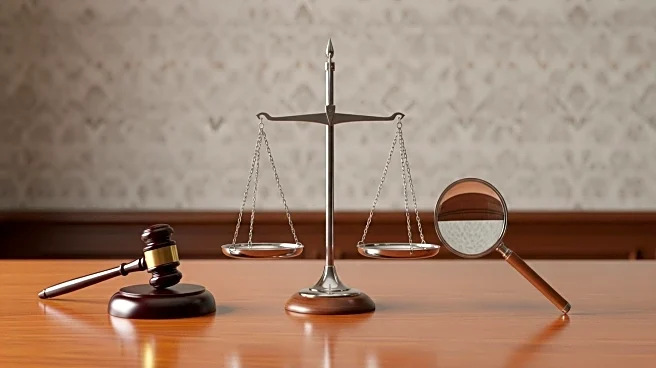What's Happening?
A corporate lawyer with significant connections to major technology firms was involved in the selection process of Niamh Sweeney, a former lobbyist for Facebook and WhatsApp, as one of Ireland's key data protection regulators. Sweeney is set to begin her role next week as one of three commissioners at Ireland's Data Protection Commission (DPC), which is responsible for enforcing Europe's General Data Protection Regulation (GDPR). The involvement of the lawyer, who represented Big Tech companies, in the selection panel has led to a formal conflict-of-interest complaint from another candidate. The DPC regulates some of the world's largest technology companies, including Meta, Google, and TikTok, which have their European operations based in Ireland.
Why It's Important?
The appointment of Niamh Sweeney has reignited concerns about the close ties between Ireland's data protection authority and the technology giants it oversees. Critics have accused the DPC of being lenient towards these firms, a stance attributed to Ireland's economic dependence on the tech sector. The DPC has imposed few major fines since the GDPR's introduction in 2018, causing frustration among privacy advocates and EU lawmakers. The involvement of a lawyer with ties to Big Tech in the selection process raises questions about the impartiality of the DPC and its ability to effectively regulate the industry.
What's Next?
As Sweeney begins her tenure, scrutiny over the DPC's relationship with technology companies is likely to increase. Privacy advocates and EU lawmakers may push for more stringent enforcement of GDPR regulations and greater transparency in the DPC's operations. The conflict-of-interest complaint could lead to further investigations into the selection process and potential reforms to ensure impartiality in future appointments.
Beyond the Headlines
The situation highlights broader ethical concerns regarding the influence of corporate interests in regulatory bodies. It underscores the need for clear guidelines and oversight to prevent conflicts of interest and ensure that regulators can operate independently from the industries they oversee. This development may prompt discussions on the balance between economic interests and regulatory integrity in Ireland and across the EU.











